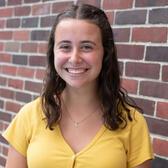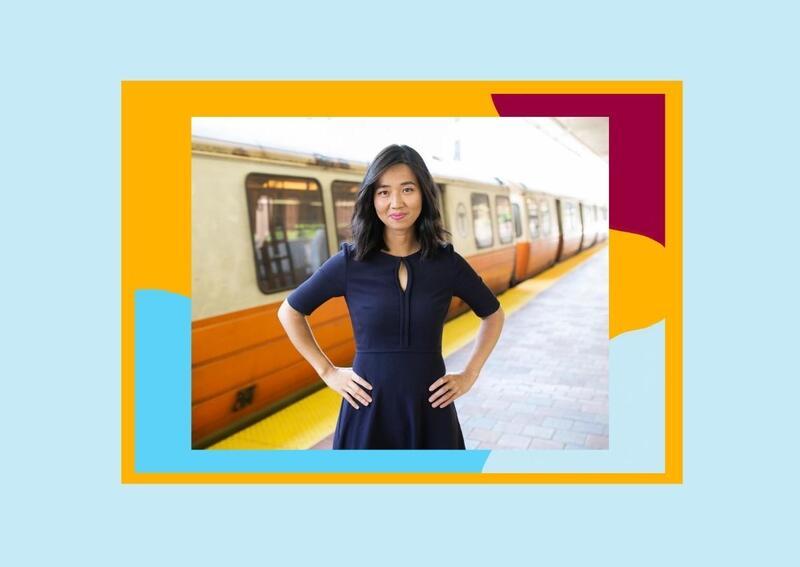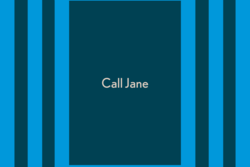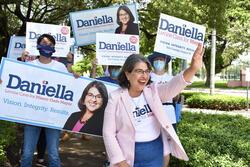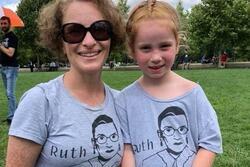Michelle Wu: The Power of Community Activism and a Hopeful Future for Boston
“One of my sons asked me the other night if boys can be elected mayor in Boston. They have been and they will again someday, but not tonight. On this day, Boston elected your mom because from every corner of our city, Boston has spoken. We are ready to meet this moment. We are ready to become a Boston for everyone.”
As I scrolled through videos on Instagram on November 2nd, I heard these words from a poised, witty, and radiant Michelle Wu in her acceptance speech after being elected Boston’s next mayor. Listening to Wu speak about the pillars of her platform and identity, I immediately fell in love with the vivid energy she brings to her activism, her thoughtful reflection on history and past movements, and her motivation to create a collective, equitable Boston.
Wu boasts quite the resume to match her inspiring words. At age 36, she served on the Boston City Council from 2014 to 2021, including two years as council president. Now, as if those accomplishments weren’t enough (insert witty Dayenu joke here), she’ll now be the first woman, first person of color, and first Asian American to serve as Boston’s mayor.
As a young Jewish feminist activist and Massachusetts resident, I can confidently say that Michelle Wu is my current idol. When listening to her acceptance speech, I was especially struck as she told the story of Boston public transportation’s Orange Line:
"It is here, [in the South End], where 52 years ago, there was a twelve-lane highway planned. They said it was a done deal, that stopping it would be impossible. And for a while that’s how it seemed until a coalition of activists from across our neighborhood stood up for people over highways. They successfully fought for housing that was affordable, for an Orange Line instead of an interstate, for families then and for families for generations to come.
Our movement is a continuation of that activism and community, showing everyone what’s possible when we all dig in and push for what we truly deserve. And what we deserve is a Boston where all of us are seen, heard, treasured, and valued—a Boston for everyone."
With this reflection on Boston’s past, Michelle Wu framed her speech not just in the past’s wrongdoings or in boasts about her own achievements. Rather, she chose to highlight the power of grassroots organizing and community-based activism and how those movements will continue to inform her political decisions.
As I look back on my Jewish feminist foremothers and their respective activist efforts, I see many parallels with Wu’s story about the Orange Line: there’s a clear pattern of community organizing, a deep level of commitment and compassion, and a guiding sense of optimism.
I see Clara Lemlich, an immigrant garment worker who organized the 1910 Uprising of the 20,000, the largest strike by women workers. This fight lasted over five years, and successfully secured paid holidays, more reasonable hours, equal division of work during slack seasons, and increased rights for laborers. I look to Heather Booth and her Jane Collective, an organization that provided illegal abortions for approximately 11,000 women in the early 1970s. Booth’s efforts demonstrated her selflessness and willingness to put communities first—she risked her own livelihood to rally behind women who needed abortions at a historical moment when widespread barriers limited access to reproductive healthcare. I turn to Bella Azbug’s fiery speeches about labor rights and peace, to Vivian Rothstein’s nonprofit work for homeless and battered women and children, and to Maxine Feldman’s dynamic comedy and music surrounding lesbian rights and identity.
Passionate women have changed the world and continue to change the world—from these remarkable Jewish activists’ efforts to Michelle Wu’s work today. Wu’s work on the City Council centered families and community—she fought for paid parental leave, language access, healthcare equity, renewable energy, and more—and her mayoral platform continues to address pressing community needs, such as housing affordability, education equity, the racial wealth gap, small business support, and climate justice.
There’s no doubt in my mind that Wu has the exact mindset, experience, and community perspective to create a Boston that’s truly for the people. She calls her new mayoral position a “huge team effort,” one that won’t get done by “sitting in a corner office at City Hall, but by bringing City Hall to every block, every street, every neighborhood.” Whether she’s familiar or not with Jewish feminist history, I see the community-based spirit of powerful Jewish women reflected in all she’s done and will continue to do in Boston.
Personally, I’m so energized by Wu’s win and I’ll certainly take up her call to make Boston a better place for everyone. Seeing a passionate, energized Wu start her term in office, I’m excited to further my research and writing about Massachusetts School Resource Officers, their role in the cradle to prison pipeline, and the dangers and implications they hold. I’ll continue to be passionate and vocal about issues of systemic racism and diversity in Massachusetts school curriculums. Knowing Wu is spearheading Boston’s government, I’m filled with a recharged spirit of activism and hope, and I’m confident other Bostonians will react similarly. Future activism efforts will thrive under a mayor who’s actively mobilizing her community and making change—in her first day in office, she filed an appropriation order with the City Council for $8 million to eliminate fares on three MBTA bus routes for a two-year period, and less than a week into her term, she signed an ordinance to divest city funds from the fossil fuels industry.
After a line of succession of consistently white male mayors, the community of Boston has spoken: we’re ready to uplift women’s voices. Asian voices. BIPOC voices. And the voices of all Bostonians who haven’t been heard, listened to, or acknowledged in the past. With Wu at the helm, we’re all on board now—as she said at the conclusion of her speech: “If we truly want to deliver change, we need every one of us shaping our future.”
This piece was written as part of JWA’s Rising Voices Fellowship.

